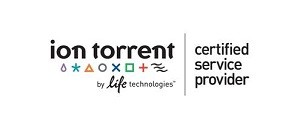Noonan syndrome is an autosomal dominant genetic disorder with multiple subtypes, caused by mutations in the genes: PTPN11, SOS1, BRAF, KRAS, NRAS, RAF1, RIT1, SOS2 and LZTR1. Noonan syndrome is a relatively common genetic disorder, with a frequency of approximately 1 in 2000 births and is part of a larger group of genetic diseases called RASopathies, which exhibit several common clinical symptoms. Besides Noonan syndrome, the RASopathies include Cardiofaciocutaneous syndrome, Costello syndrome, Legius syndrome and neurofibromatosis type 1.
Approximately 50% of cases are associated with mutations in the PTPN11 gene at chromosomal region 12q24, mutations in the SOS1 gene are linked to about 10-15% of cases, while mutations in the other genes are less common (ranging from 3-5% each). Most of the mutations in these genes are de novo and the main phenotypic characteristics of Noonan syndrome are short stature, hypertelorism, low-set ears and congenital heart defects. Mental retardation and varying degrees of developmental delay may also be present in some patients, while cryptorchidism is also observed in several male patients.
During 1st trimester prenatal ultrasound examination, the presence of increased nuchal translucency, cystic hygroma or, later, polyhydramnios, may indicate the presence of the disease and the need for genetic testing, although these findings are not disease-specific and may be associated with other birth defects or chromosomal syndromes.
We perform DNA sequence analysis, via Next Generation Sequencing (NGS) on a Genome Analyzer – Ion Proton platform, of all exons and intron-exon junctions/splice sites of the 6 genes: PTPN11, SOS1, BRAF, KRAS, NRAS, RAF1, allowing us to detect, through the use of specially developed bioinformatics tools, >98% of all pathogenic mutations of the genes and the associated syndromes.
Where possible and/or necessary, we carry out additional MLPA analysis in order to detect deletions/duplications of the genes (please consult the final test report).
The test is highly sensitive and complex, so it is necessary that the results are assessed by a specialized team of clinical and molecular geneticists, in order to ensure safe and reliable testing.
Proper clinical genetic assessment and genetic counseling, both before and after testing, is essential in order to determine the optimum testing strategy and also to communicate properly the concepts of pathological and normal.

